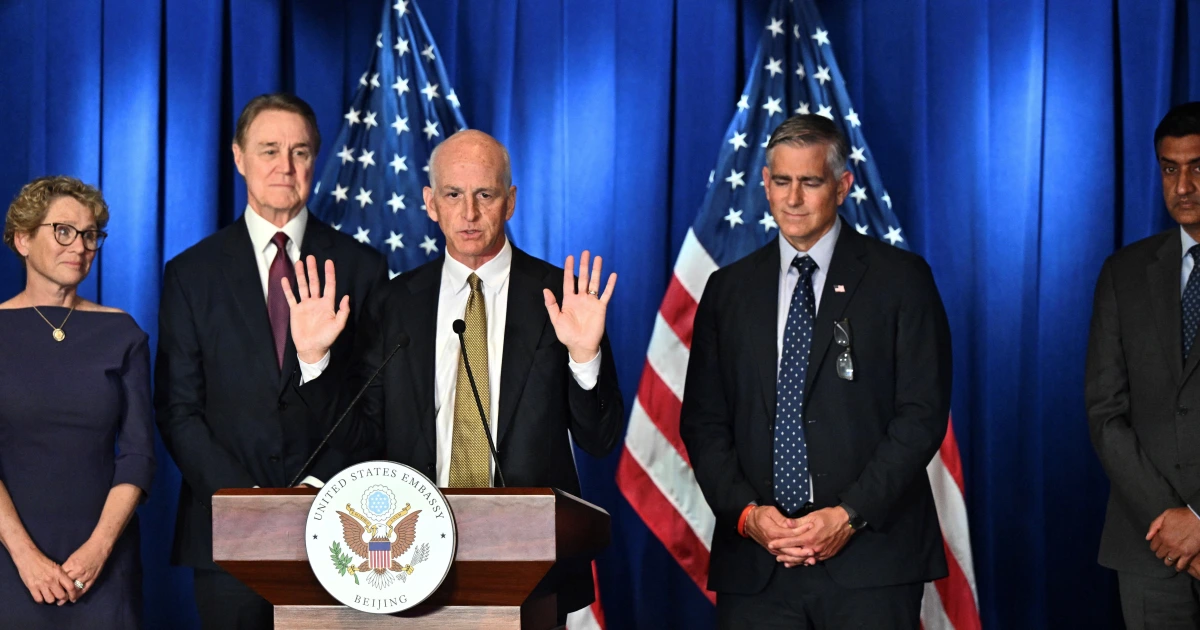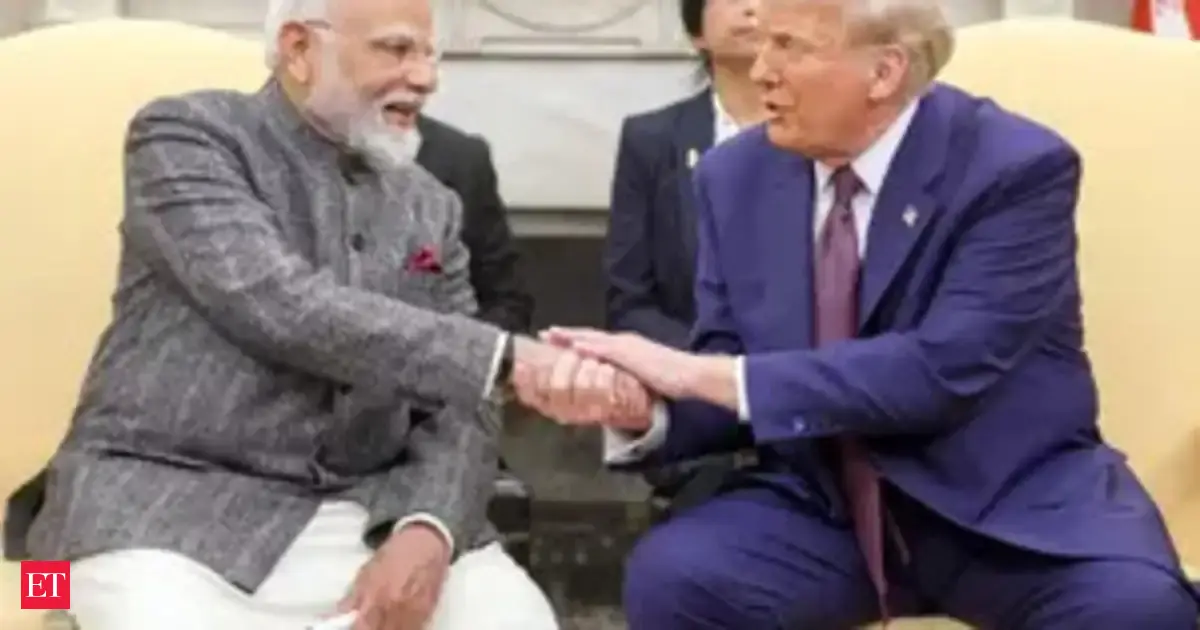
BEIJING — Washington and Beijing will have to communicate better if they are to resolve their various disagreements — and if they don’t talk it could be “dangerous,” a U.S. lawmaker said Tuesday during a rare congressional visit to China.
Though a group of U.S. senators visited Beijing in 2023, this is the first delegation of House lawmakers to visit China since 2019. Their trip comes amid tensions between the U.S. and China over trade, technology and wars in the Middle East and Ukraine.
Rep. Adam Smith, D-Wash., the leader of the bipartisan delegation, said they held “robust and very helpful” meetings with Chinese officials and that the objective of the trip was to reopen lines of communication between “the two most powerful countries in the world.”
“Our relationship is going to be the most consequential relationship in terms of what the world is going to be like for decades to come,” Smith told reporters at the U.S. Embassy in Beijing. “It is really important that we work to strengthen that relationship and better understand each other.”
The military relationship between the U.S. and China is of particular concern, he said.
The visit by the congressional delegation comes weeks after Beijing showed off its military might and advanced weaponry in a highly choreographed parade.
“China is the most rapidly growing military and the most rapidly growing nuclear power in the world. The U.S. has the biggest military in the world and the biggest nuclear arsenal,” Smith said. “It is dangerous for us not to be having regular communications about our capabilities and intentions.”
The visit also comes days after President Donald Trump and Chinese leader Xi Jinping spoke Friday in their first phone call since June. Trump said they agreed during the call to meet on the sidelines of the Oct. 31 to Nov. 1 APEC Summit in South Korea and that he would visit China early next year.
David Perdue, the new U.S. ambassador to China, said the two leaders had a “great call” and were “looking forward to getting together.”
“I would say that the relationship between President Xi and President Trump is actually very good and very encouraging right now,” he said.
The other members of the delegation are Reps. Michael Baumgartner, R-Wash.; Ro Khanna, D-Calif.; and Chrissy Houlahan, D-Pa. They are in China until Thursday.
After their arrival on Sunday, the lawmakers met with Premier Li Qiang, China’s No. 2 official. On Monday, they met with Vice Premier He Lifeng, who has been leading the Chinese side in trade negotiations with the U.S., and Defense Minister Dong Jun.
In their meeting with He, the delegation discussed the talks with China, which accounts for the largest U.S. trade deficit, and urged Beijing “to help stem the flow of fentanyl to the U.S. and reduce non-tariff barriers to U.S. companies seeking to do business in China,” according to a congressional readout.
The delegation also discussed the future of the video app TikTok, which is facing a ban in the U.S. unless its Chinese parent company sells its U.S. assets to U.S. owners, as well as the issue of critical minerals and the export controls Beijing has sought to impose on them as it leverages its near-monopoly in the industry.
In their meeting with Dong, the lawmakers stressed the importance of greater communication between the U.S. and Chinese militaries to avoid miscalculation and conflict.
Communications between the militaries were suspended starting in August 2022 after Nancy Pelosi, the House speaker at the time, angered Beijing by visiting Taiwan, a self-governing island democracy that China claims as its territory. They were restored in November 2023 after a meeting in the U.S. between Xi and President Joe Biden.
The lawmakers visiting China said the U.S. military presence in the Asia-Pacific “should not be construed as a threat to China,” that they sought a peaceful resolution to the issue of Taiwan and that conflict between the U.S. and China “should not be inevitable.”
Speaking before their meeting, Dong said the visit “shows a good phase in strengthening China-U.S. communications, and I believe it is the right thing to do.”
Janis Mackey Frayer reported from Beijing, and Jennifer Jett from Hong Kong.



